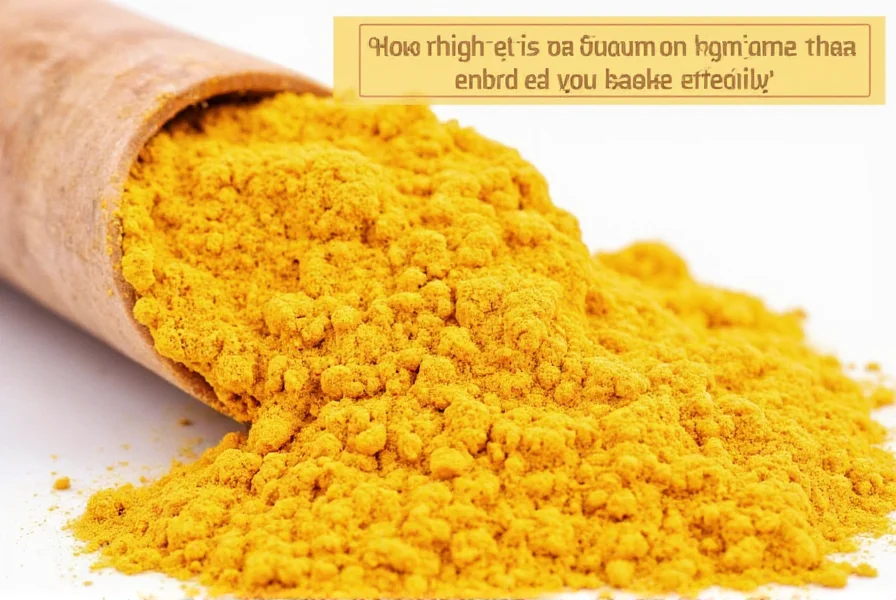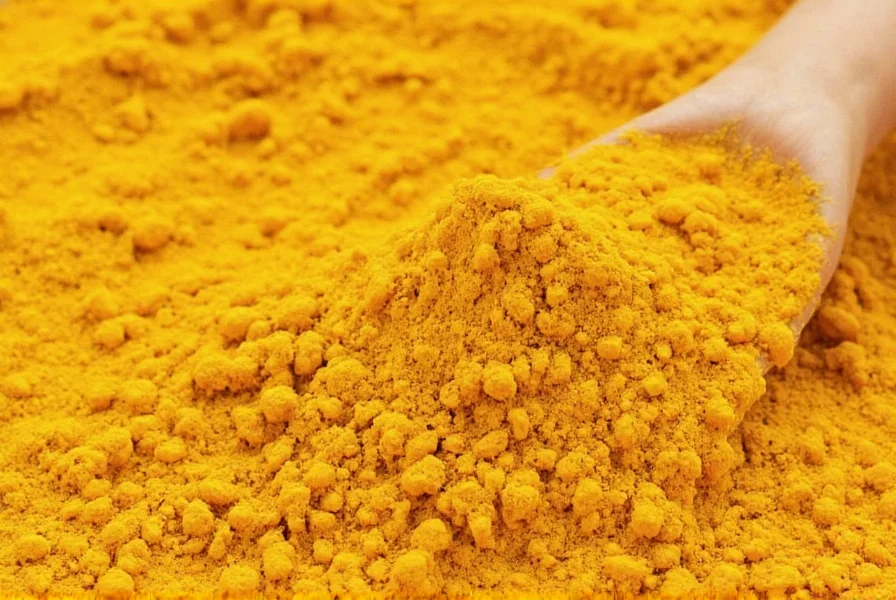Most people begin noticing turmeric's effects within 4 to 8 weeks of consistent daily use at appropriate doses (typically 500-2,000 mg of curcumin with bioavailability enhancers). However, the exact timeframe varies significantly based on the specific health concern, turmeric formulation, dosage, and individual factors like metabolism and overall health status.
Curcumin, turmeric's active compound, has gained widespread attention for its potent anti-inflammatory and antioxidant properties. Understanding how long it takes to experience benefits is crucial for setting realistic expectations when incorporating this golden spice into your wellness routine. Unlike pharmaceutical drugs that often produce immediate effects, natural supplements like turmeric work gradually as they accumulate in the system and influence biological pathways.
Factors That Influence Turmeric's Effectiveness Timeline
The timeframe for turmeric to deliver noticeable results isn't one-size-fits-all. Several critical factors determine how quickly you might experience benefits:
1. Bioavailability Matters Most
Curcumin has notoriously poor bioavailability when consumed alone. Without enhancement, up to 80% passes through your system unabsorbed. This explains why traditional culinary use of turmeric powder rarely delivers therapeutic effects. Modern formulations address this challenge:
| Formulation Type | Average Bioavailability Increase | Expected Timeline for Effects |
|---|---|---|
| Standard turmeric powder | 1x (baseline) | 12+ weeks (minimal effects) |
| Curcumin with piperine (black pepper extract) | 20x | 4-8 weeks |
| Liposomal or nanoparticle curcumin | 50-185x | 2-6 weeks |
| Curcumin with phospholipids (Meriva®) | 29x | 3-7 weeks |
2. Dosage Requirements for Therapeutic Effects
Research indicates that effective daily doses range from 500mg to 2,000mg of enhanced curcumin. Lower doses may provide culinary benefits but won't deliver significant therapeutic effects. The Arthritis Foundation recommends 400-600mg of curcumin supplements taken 2-3 times daily for inflammation management.
3. Specific Health Conditions and Expected Timelines
Different health concerns respond to turmeric at varying rates. Clinical research provides these evidence-based timelines:
- Joint pain and inflammation: Most studies show significant improvement in osteoarthritis symptoms after 6-12 weeks of consistent use at 1,000mg/day of enhanced curcumin
- Exercise-induced muscle soreness: Some research indicates reduced recovery time within 24-48 hours when taken before intense activity
- Skin health improvements: Visible changes in conditions like psoriasis typically appear after 4-12 weeks of daily supplementation
- Mood support: Studies on curcumin's antidepressant effects show measurable improvements after 4-8 weeks
- Digestive benefits: Some users report reduced bloating and improved digestion within days to weeks
What Scientific Research Tells Us About Turmeric's Timeline
A comprehensive 2022 review published in Nutrients analyzed 37 clinical trials on curcumin supplementation. The researchers found that most participants reported noticeable improvements in inflammatory markers between 4-12 weeks, with optimal results typically appearing around the 8-week mark.
One landmark study followed 100 adults with knee osteoarthritis. Those taking 1,500mg daily of BCM-95® curcumin (a bioavailable form) showed:
- 20% reduction in pain scores after 4 weeks
- 40% improvement in physical function after 8 weeks
- Near-maximum benefits observed at 12 weeks
"The anti-inflammatory effects of properly formulated curcumin build progressively," explains Dr. Jane Mitchell, a nutritional biochemist who co-authored the study. "Unlike NSAIDs that provide immediate but temporary relief, curcumin works by modulating multiple inflammatory pathways, which takes time to manifest as noticeable symptom improvement."

Maximizing Turmeric's Effectiveness
To potentially shorten the timeline for experiencing benefits, consider these evidence-based strategies:
Combine with Healthy Fats
Curcumin is fat-soluble. Consuming it with healthy fats like avocado, olive oil, or coconut oil can significantly improve absorption. One study showed that taking curcumin with a high-fat meal increased absorption by 33%.
Pair with Black Pepper
Piperine, the active compound in black pepper, inhibits liver metabolism of curcumin, boosting blood levels by up to 2,000%. Look for supplements that include 5-10mg of piperine per dose.
Morning and Evening Dosing
Research suggests splitting your daily dose (e.g., 500mg morning and evening) maintains more consistent blood levels than taking it all at once.
Track Your Progress
Keep a symptom journal to objectively monitor changes. Many people overlook gradual improvements until they look back at their initial condition. Note specific metrics like:
- Pain levels on a 1-10 scale
- Morning stiffness duration
- Medication usage frequency
- Energy levels throughout the day
When to Consult a Healthcare Provider
While turmeric is generally safe for most people, consult your healthcare provider before starting supplementation if:
- You take blood thinners (curcumin has mild anticoagulant properties)
- You have gallbladder issues (turmeric may increase bile production)
- You're scheduled for surgery within the next two weeks
- You experience no improvement after 12 weeks of proper usage
"If you're not noticing any benefits after 8-12 weeks of consistent use with a high-quality, bioavailable formulation at appropriate doses, it's worth discussing alternative approaches with your healthcare provider," recommends Dr. Alan Chen, an integrative medicine specialist. "Individual biochemistry varies significantly, and what works for one person may not work for another."
Realistic Expectations for Turmeric Benefits
Understanding how long does it take for turmeric to work for inflammation requires patience and consistency. Unlike pharmaceutical interventions that often provide immediate but temporary relief, natural supplements work more gradually as they influence underlying biological processes.
Most clinical evidence suggests that for how long does it take for turmeric to work for joint pain specifically, users should commit to at least 8 weeks of consistent daily use before evaluating effectiveness. The timeline for how long does it take for turmeric curcumin to work for general wellness may be longer, as systemic inflammation reduction occurs gradually.
Remember that turmeric works best as part of a comprehensive approach to health that includes proper nutrition, regular exercise, and stress management. Setting realistic expectations about how long does turmeric take to work in your system will help you determine whether it's providing meaningful benefits for your specific health goals.











 浙公网安备
33010002000092号
浙公网安备
33010002000092号 浙B2-20120091-4
浙B2-20120091-4